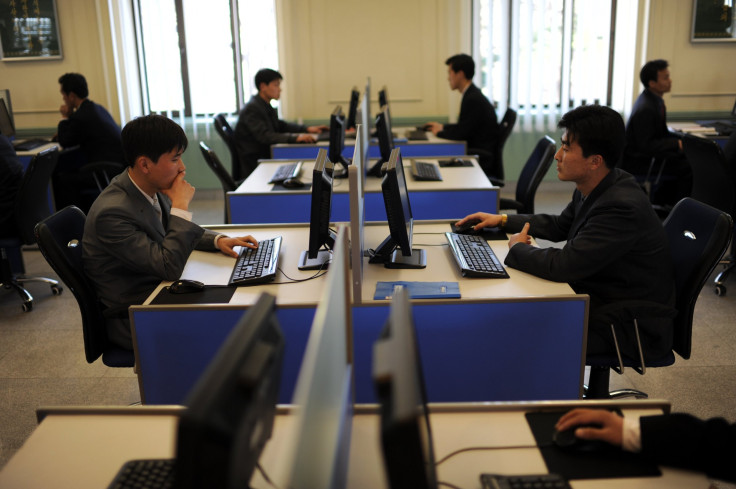North Korea May Be Mining Cryptocurrency Monero: Report

Cash-starved North Korea may be mining the cryptocurrency Monero through one of its universities according to a Reuters report Monday.
A program that installs code for mining cryptocurrency and sends the mined profits to Kim Il Sung University in Pyongyang was discovered by cybersecurity firm AlienVault. Cryptocurrencies are decentralized digital currencies. Computer power used to host and record transactions for a cryptocurrency are spread over a series of volunteer computers who can earn some of the currency for their service in a process called mining.
“Monero doesn’t condone secretive malware that – unknown to the computer user – mines Monero. Further, no currency, digital or fiat, is immune to criminal malfeasance. Unfortunately, since the invention of the internet, viruses and trojans that hijack computing resources for evil have existed,” said members of the Monero community including lead maintainer Riccardo Spagni in a statement to International Business Times. “No matter where you are from, how much you money you have, or what you choose to spend it on, the technologies employed by Monero protect your right to financial privacy. Monero is an open source, decentralized, privacy-focused cryptocurrency that exists for this sole purpose. We strongly believe the positive benefits of privacy oriented technologies like Monero far outweigh the negative.”
AlienVault told Reuters that the server used in the code doesn’t appear attached to the wider internet and may be a decoy, suggesting a North Korean connection to fool observers. The University also hosts students and professors who aren’t North Korean who may be mining on their own.
AlienVault’s report pointed out that one North Korea IP address, 75.45.178.19, has been active in bitcoin trading and was attached to cyberattacks in South Korea in 2014 and 2015. The attacks targeted energy, traffic, telecommunications, broadcasting, financial and political institutions, according to Reuters.
North Korea’s internet access is extremely regulated, like most aspects of life in the country. Most internet users in the country use an intranet, which is closed off from the rest of the world wide web. Most North Koreans can’t see websites like Facebook, but can access internal North Korean websites. Access to internet connected to the outside world is reserved for elites and some academics who are vetted and monitored.
North Korea is extremely cash-strapped due to intense United Nations economic sanctions. The sanctions are meant to penalize North Korea for their continued nuclear weapons and ballistic missiles test. A set of September resolutions passed by the U.N. in response to North Korea’s sixth and largest nuclear weapon test severely limited oil trade for the country. The resolutions also banned North Koreans from working abroad and sending money back to their government, a practice widespread in China and Russia.
This story has been updated to include a response from Monero.
© Copyright IBTimes 2025. All rights reserved.





















